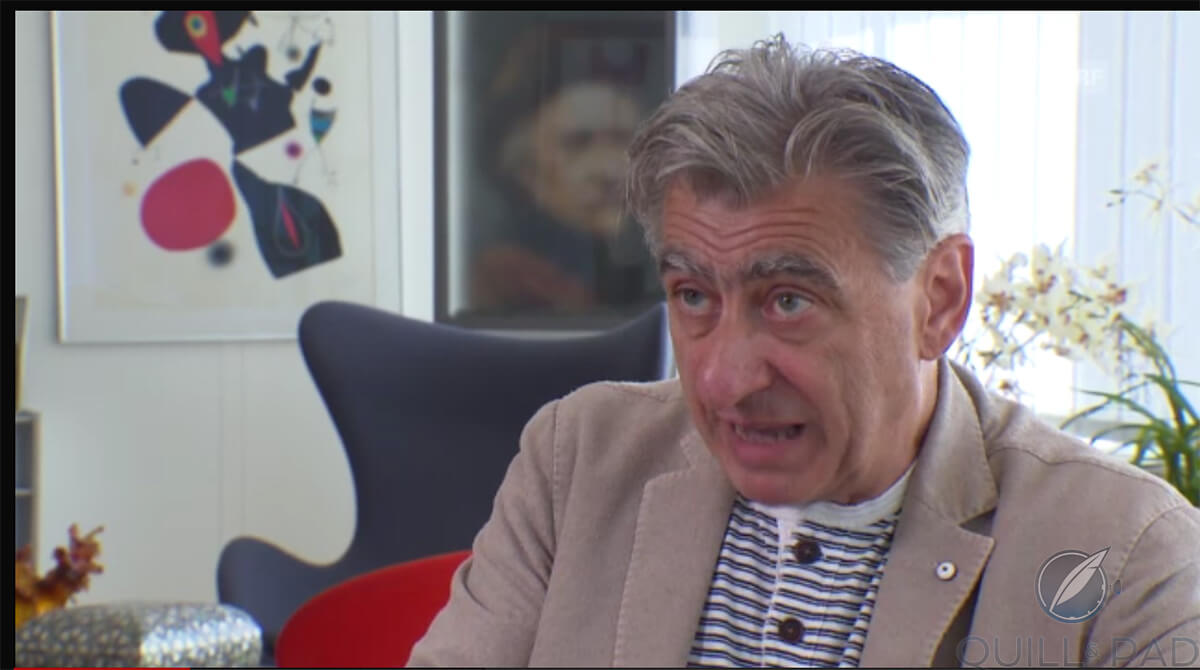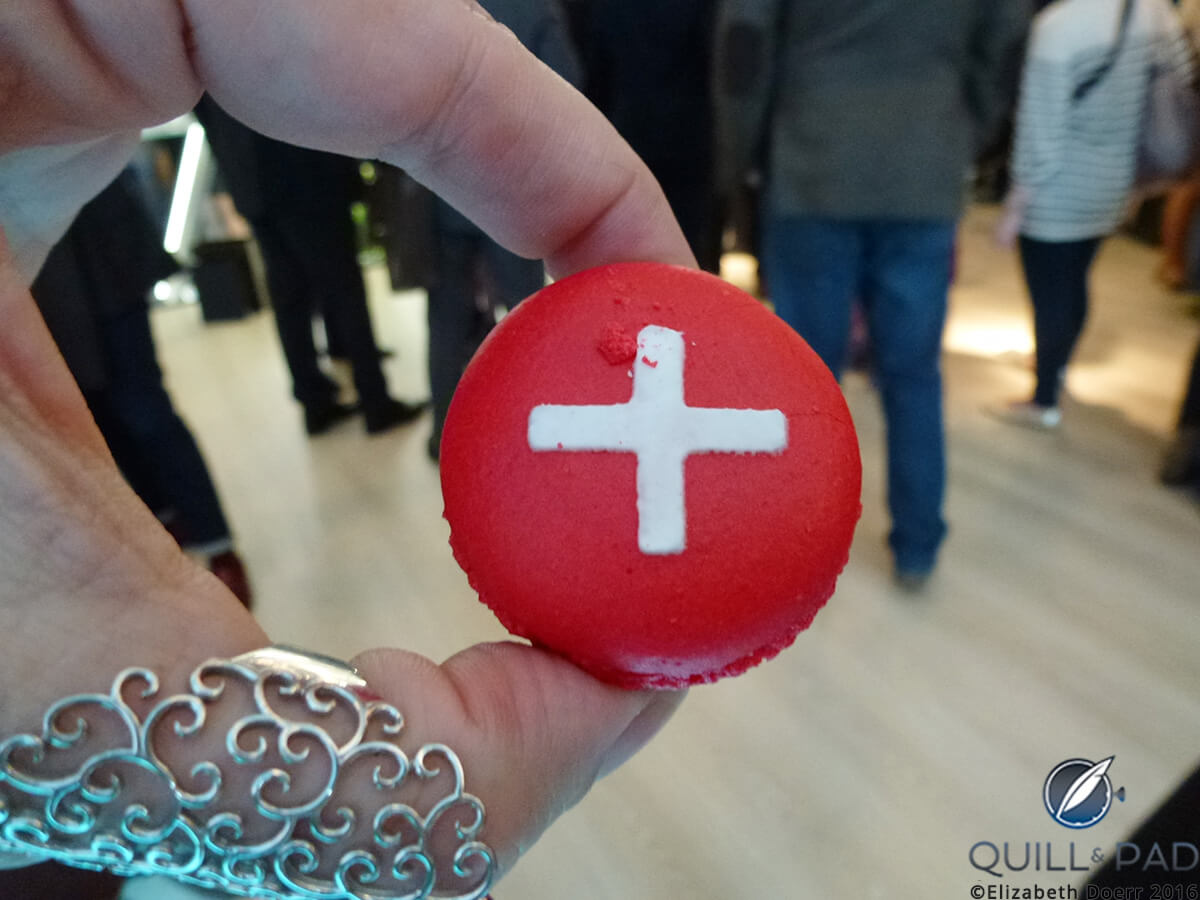The Swatch Group released its half-year report for 2016 on July 21.
The results are quite depressing with an operating result 53.6 percent below the same period for 2015, but on par with current industry reports. The Swatch Group report attributes this dramatic decrease to “additional currency shifts, lower production utilization, and the long-term industrial strategy of continued investment in the employees, new products, and marketing.”
The good news is that the Swatch Group has not laid off or fired even one employee despite the decrease in profit, a strategy that I believe will pay off in the end and prevent history from repeating. The Swatch Group owns 17 active brands and one that is not currently operating (Léon Hatot) as well as 17 production companies with 156 production centers, and three companies producing electronics systems – around 180 companies in total.
Swatch Group employs more than 36,000 people in more than 50 countries.
The half-year report press release states: “In the first half of 2016, no structural changes were undertaken, which means that jobs were deliberately maintained, particularly in production, where the capacity utilization was less than in the previous year. Currently, only regular employee departures are not replaced. As a result, the number of employees remained steady at approximately 36 000 at the end of June 2016.”
The positive side of the Swatch Group report is manifold for the company despite the bad news: there is double-digit retail growth in mainland China and southeast Asia; Harry Winston, the Swatch Group’s latest brand acquisition, had a record retail month in June 2016; and the United Kingdom showed a very strong start to July thanks to currency devaluation.
Nick Hayek comments the results
In an interview with Switzerland’s German-language SRF TV station, Swatch Group CEO Nick Hayek offers some explanation for the plunging sales figures of the world’s largest luxury watch group.

Swatch Group CEO Nick Hayek being interviewed on SRF (German-language Swiss TV) following the group’s published results for the first half of 2016
When the interviewer asks whether the numbers make him nervous, Hayek responds in a relatively calm manner.
“No, you have to put these numbers into perspective and analyze them,” he answers. “Naturally, I would prefer to make more turnover and profit than less, but you have to look at the causes. We have three countries that were negative in growth, the rest were positive – mainland China, Canada, and Russia, for example. There are many important countries where we sold more. When you look at Switzerland, France, and Hong Kong, though, which are very dependent upon tourism, for example, we did much less turnover there.”

The Swiss cookie seems okay for now, but could crumble at any time
Hayek goes on to blame “fantastic bureaucratic feats of the Europeans” such as biometric visas for Chinese (“while the Chinese have at least partially stopped demanding visas for Europeans”), the result of which, according to the Swiss national, is that there are 30-40 percent less Chinese tourists in Europe in 2016.
He blames this in great part for the fall of sales, but also goes on to explain that this is a “momentary” situation.
The interviewer then inquires as to whether Hayek believes that terrorist attacks may have also influenced sales. Hayek naturally agrees, saying, “But I don’t want to complain about that because it just happens. Every morning, you get up and there’s a new announcement – a coup in Turkey or whatever.”
But he again blames the bureaucratic obstacles, which he says have been in place since November. “And we noticed that this started in November, December for us, and slowly it’s starting to normalize. But now not much luck – Paris and what’s just happened in Nice. But I don’t want to use that argument, these contingencies are happening all over the world.”
“But I see better numbers in the second half of the year.”
The interviewer then points out that Hayek was “quite optimistic about the year back in February 2016.”
Hayek answers that he was and still is optimistic for 2016. And he underscores that the most important thing for him is that the Swatch Group’s factories continue to run. “We also have the Olympic Games coming up and a lot more opportunities than risks to catch up in 2016.”
When the interviewer asks how Hong Kong can be solved, Hayek replies that it can’t be solved by his organization.
“In Hong Kong there are two main factors: the price, meaning the exchange rate situation between China and Hong Kong has deteriorated . . . and you know that people are sensitive when it comes to price. As soon as things are ‘cheap’ due to exchange rate, they run to it. Look at the situation in London: in the first three weeks of July in our Breguet, Blancpain, Omega, and Tissot stores in London we sold 50 to 100 percent more – only due to the exchange rate, the plummeting pound. In Hong Kong that is our problem.”
“The second thing is that the Hong Kong population is giving a clear signal that they don’t want to have the mainland Chinese there,” the CEO, who wears a Swatch during the interview, continues. “There are too many of them, they spit on the sidewalks, they’re not as well-behaved; so there is that signal that they’re not wanted. Macau, which is near Hong Kong, is booming, double-digit growth. The residents of Macau want the Chinese; the population of Hong Kong doesn’t. And as long as that doesn’t change, Hong Kong will never return to the strong growth it had before.”
The interviewer then asks a pivotal question: “If things don’t change, would you be prepared to change something through price structure?”
To which Hayek provides a definitive answer. “We are a brand product. We are not a commodity. We do not make yoghurt. . . let me give you an example. If you buy a Blancpain for 20,000 Swiss francs, and then the following week you walk by the store and see it offered for 19,000 as a consumer you think, ‘What crooks’.”
At the end of the interview, Hayek suggests that the solution is to offer innovative new products in another price segment, which is his strategy.
Let’s hope Hayek’s optimism for the last half of 2016 pays off.
For more information, please download www.swatchgroup.com/investor_relations/annual_and_half_year_reports/last_half_year_report.
Leave a Reply
Want to join the discussion?Feel free to contribute!

I completely agree with Mr. Hayak he is a visionary and sees the future in there incredible product. I own an OMEGA timepiece and other brands of the Swatch Group. The best technology out there at an accessible price.
I respectfully disagree with Mr. Hayek’s response to the question on changing price structures. There are many avenues available to source a watch and everyone is looking for a “deal” nowadays. Not suggesting lowering list prices but instead allowing your dealer network to discount prices based on supply and demand rather than dictating the maximum they can discount. Another way to help maintain or increase sales levels for a manufacture is to offer a customer loyalty program not unlike what high end automobile makers do. Current owners of their cars receive a meaningful rebate on top of their discount with a purchase of a new one.
Although this may result in a reduction of the huge margins in this industry, it could help stabilize unit sales and revenue in a difficult economy.
I do believe that brand loyalty exists, so all of this would help the manufacturer retain that customer loyalty as well as minimize grey marketing.
Russ, you can’t even get a discount at an Omega boutique! You can buy say a Speedy Pro at any Omega dealer, and yet the company boutiques won’t discount, whereas any half decent AD is giving MINIMUM 25% off the bat.